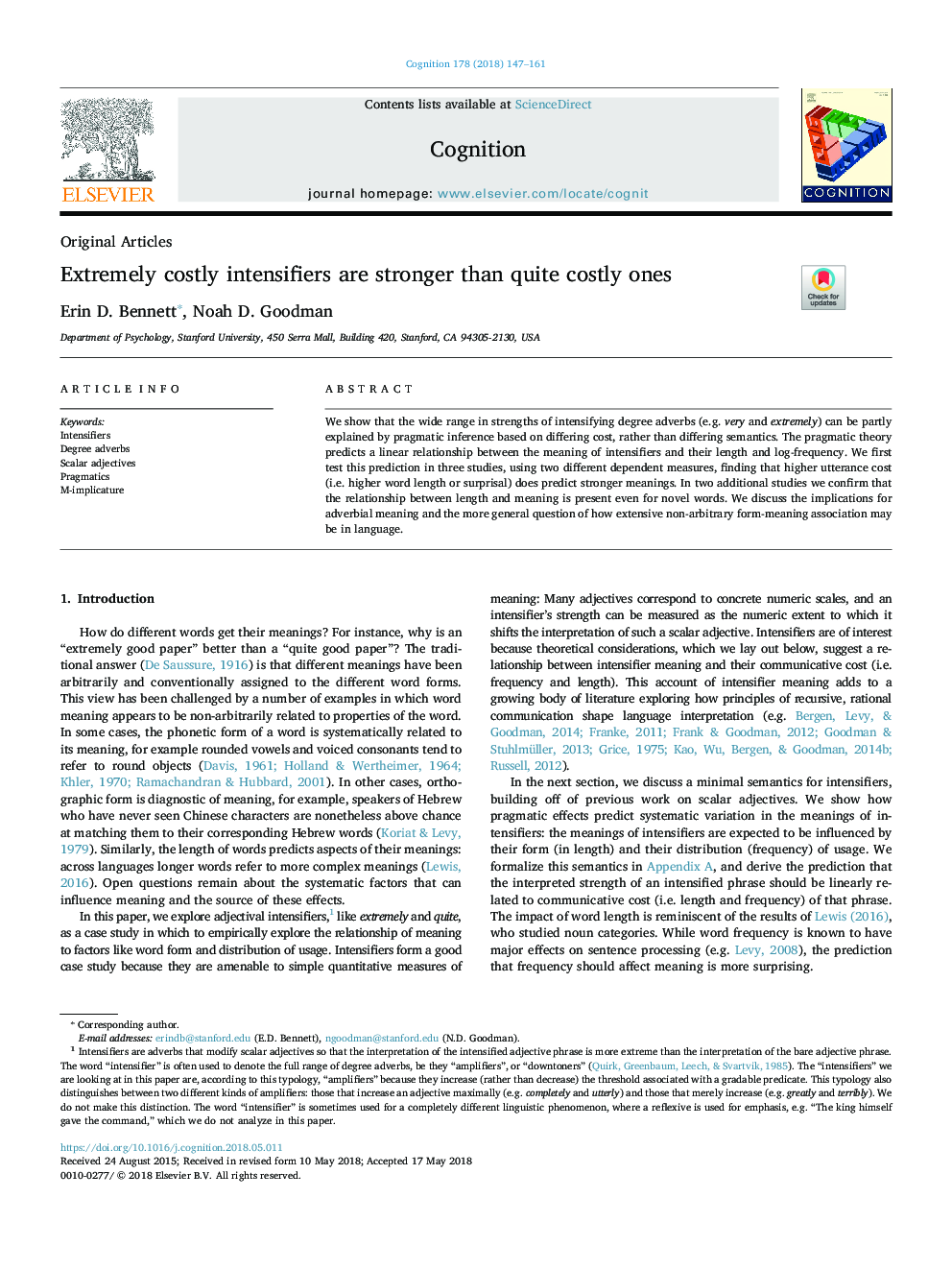| Article ID | Journal | Published Year | Pages | File Type |
|---|---|---|---|---|
| 7285246 | Cognition | 2018 | 15 Pages |
Abstract
We show that the wide range in strengths of intensifying degree adverbs (e.g. very and extremely) can be partly explained by pragmatic inference based on differing cost, rather than differing semantics. The pragmatic theory predicts a linear relationship between the meaning of intensifiers and their length and log-frequency. We first test this prediction in three studies, using two different dependent measures, finding that higher utterance cost (i.e. higher word length or surprisal) does predict stronger meanings. In two additional studies we confirm that the relationship between length and meaning is present even for novel words. We discuss the implications for adverbial meaning and the more general question of how extensive non-arbitrary form-meaning association may be in language.
Keywords
Related Topics
Life Sciences
Neuroscience
Cognitive Neuroscience
Authors
Erin D. Bennett, Noah D. Goodman,
